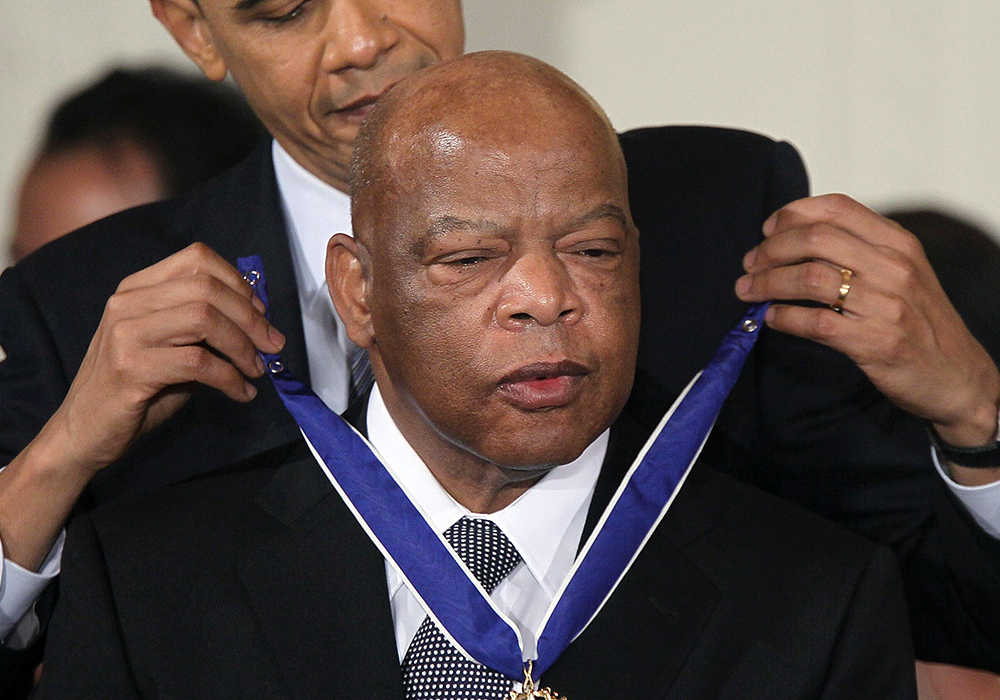Hon. Bro. John Lewis | Sigma Sigma Sigma Chapter

Hon. Bro. John Lewis, born John Robert Lewis on February 21, 1940, near Troy, Alabama, was the third of ten children of Willie Mae (née Carter) and Eddie Lewis. His parents were sharecroppers in Pike County, where Troy served as the county seat. His great-grandfather, Frank Carter, was born a slave in 1862 in the same county and lived until Lewis was seven years old.
As a child, Lewis dreamed of becoming a preacher and, at the age of five, even preached to his family’s chickens on their farm. Growing up in a largely Black community with minimal interaction with white people, Lewis only saw two white individuals before he turned six. When he was 11, his uncle took him to Buffalo, New York, where he witnessed firsthand the stark contrast between life in Troy and the realities of segregation.
In 1955, Lewis first heard Dr. Martin Luther King Jr. on the radio and became deeply moved by King’s leadership during the Montgomery bus boycott. By 15, Lewis had delivered his first public sermon, and by 17, he met Rosa Parks, a key figure in the boycott, before meeting King in person at 18. Lewis would later credit evangelist Billy Graham, a friend of King’s, for inspiring him to pursue ministry.
After being denied admission to Troy University, Lewis reached out to Dr. King, who invited him to meet and discuss the possibility of suing the university for discrimination. However, King cautioned him about the dangers to his family if he pursued such a course. After consulting with his parents, Lewis chose to continue his education at a small historically Black college in Tennessee.
Lewis went on to graduate from the American Baptist Theological Seminary in Nashville, Tennessee, and was ordained as a Baptist minister. He earned a bachelor’s degree in religion and philosophy from Fisk University, another historically Black institution, and became a member of Phi Beta Sigma fraternity.
As a student, Lewis became an active member of the civil rights movement, organizing sit-ins at segregated lunch counters in Nashville and engaging in other protests as part of the Nashville Student Movement. These efforts were pivotal in desegregating the city’s lunch counters. Lewis was arrested multiple times for his nonviolent activism aimed at securing voting rights and racial equality.
One of his guiding principles throughout his life was the idea of engaging in “good trouble, necessary trouble” to drive change. During his time at Nashville’s nonviolence workshops, led by Rev. James Lawson and Rev. Kelly Miller Smith, Lewis adopted the philosophy of nonviolent resistance that he would practice for the rest of his life.
In 1961, Lewis became one of the 13 original Freedom Riders, a group who rode interstate buses from Washington, D.C., to New Orleans to challenge segregated seating policies, despite them being deemed unconstitutional by the Supreme Court in Boynton v. Virginia (1960). The Freedom Rides aimed to pressure the federal government to enforce this ruling. Along the way, Lewis and other riders were met with violent resistance from mobs and, in some instances, law enforcement. At 21, Lewis was the first Freedom Rider to be attacked, beaten in Rock Hill, South Carolina. Two weeks later, he was again assaulted while attempting to enter a whites-only waiting room in Jackson, Mississippi, which led to his 40-day imprisonment at Mississippi State Penitentiary.
In an interview marking the 40th anniversary of the Freedom Rides, Lewis recalled the extreme violence the Riders endured, particularly the brutal attacks by KKK members in Birmingham and Montgomery. In Montgomery, he was knocked unconscious after being struck in the head with a wooden crate. Despite the violent opposition, Lewis and other activists, including Diane Nash, kept the movement alive, ensuring the Freedom Rides were completed successfully.
In February 2009, 48 years after the attack in Montgomery, Lewis received a public apology from Elwin Wilson, a former Klansman, for his role in the violence during the Civil Rights Movement.
Lewis also knew Michael Schwerner, Andrew Goodman, and James Chaney, three activists who were murdered by the Ku Klux Klan in Neshoba County, Mississippi, in 1964. In 1998, Lewis published his memoir Walking With the Wind: A Memoir of the Movement, reflecting on his life and the journey for civil rights.
Hon. Bro. Lewis joined the Omega Chapter on July 17, 2020.
Awards:Civil Right Walk of Fame, National Association for the Advancement of Colored People's Spingarn Medal, the John F. Kennedy Profile in Courage Award, and the Martin Luther King, Jr. Nonviolent Peace Prize.

